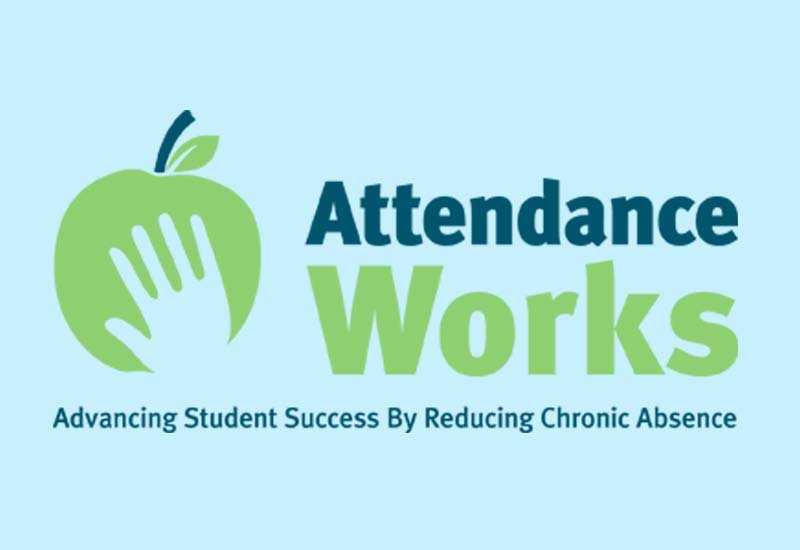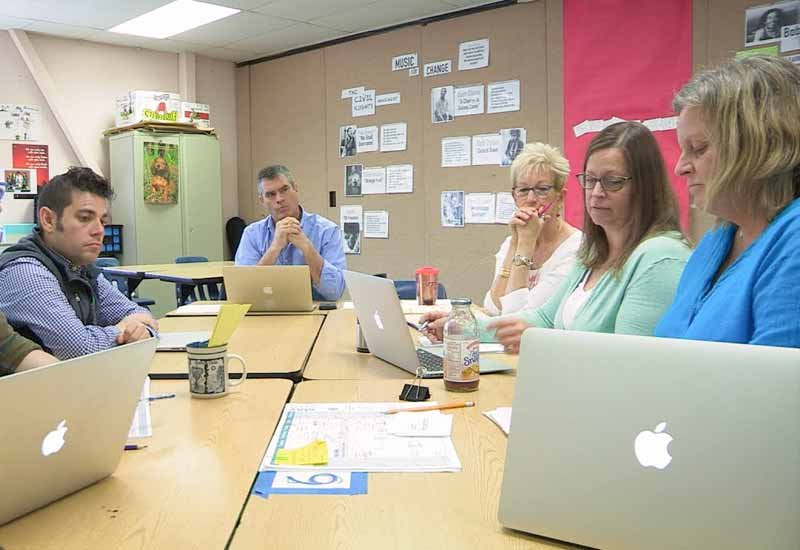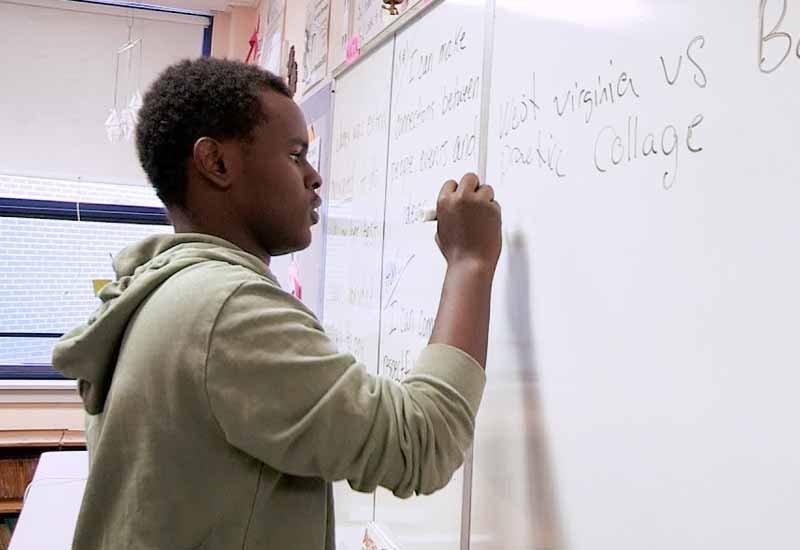
Resource Library
Use the filter options below to find the resources you are looking for.
Gallery | List
Handbook for Assessment in the Service of Learning, Volume I
In two chapters of the open-source Handbook for Assessment in the Service of Learning, Volume I, Pamela Cantor, MD highlights how assessment can be designed to reveal strengths and shape learning.
Why Optimism Is Your Superpower (And How To Unlock It In 5 Easy Steps)
A Forbes article by Talia Milgrom-Elcott, leader of Beyond100K, highlights the science of optimism and how it can transform lives. Quoting Pamela Cantor, M.D., the article describes the link between our actions and biological resilience, emphasizing a commitment to meaningful steps that unlock human potential.
Pamela Cantor, M.D. Explains The Biology of Learning and Its Link to Belonging
Pamela Cantor, M.D., explains the biology of learning and its connection to belonging in this video from History Co:Lab as part of the Building Belonging Project, a product of the Jacobs Foundation and New America’s Learning Sciences Exchange (LSX) fellowship.
Optimism Is A Natural Anti-Anxiety Med. Here’s How It Works.
In a world where uncertainty seems to be the only constant, maintaining a positive outlook is more crucial than ever. A Forbes article by Talia Milgrom-Elcott, leader of Beyond100K, delves into the power of optimism as a solution to 2024's complexities and challenges and shares insights from Pamela Cantor, M.D.
Weaving a Colorful Cloth: Centering Education on Humans’ Emergent Developmental Potentials
A research synthesis by Mary Helen Immordino-Yang, Na’ilah Suad Nasir, Pamela Cantor, M.D., and Hirokazu Yoshikawa offers a conceptual foundation for rethinking the nature of learning, the work of teaching, and the purpose and design of schools and youth-facing policies.
Working Memory: Don't Lose It, Use It
Pamela Cantor, M.D. explains what working memory is, how it works, why it's the gateway to learning, and the forces, including social media, that impede its critical function.
All Children Thriving: A New Purpose for Education
Pamela Cantor, M.D. discusses the inequities of the current education system and proposes a new vision for learning grounded in whole-child development.
Building Blocks for Learning
A framework for the development of skills children need for success in school and beyond.
“Belonging and Engagement: The Keys to Showing Up,” hosted by Attendance Works and the Institute for Educational Leadership.
Part of the 2023 Attendance Awareness Campaign, this webinar focuses on strategies for increasing attendance, engagement, and belonging by drawing on the assets available to schools and communities.
March 30, 2023How A.I. Chatbots Could Solve The Two Sigma Problem
Don't be afraid of A.I. Chatbots. They could be key to boosting your child's learning.
NBC News TODAY Parents with Kate Snow
Learning Loss: Learn What We Can Do About It Watch Dr. Pamela Cantor, M.D. in conversation with NBC News' Kate Snow, National PTA President Anna King, and Co-CEO of Excellence Community Charter Schools Dr. Charlene Reid as they answer parents' top questions about supporting young learners. From motivation and resilience to summer learning and academic success, explore expert insights on what truly helps children thrive. Watch the full discussion here.
The 180 Podcast | Anya Kamenetz: We Didn’t Prioritize Kids—COVID, The Stolen Year, and Where We Go Now
In her book The Stolen Year: How COVID Changed Children’s Lives, and Where We Go Now, Anya Kamenetz writes that in March 2021, experts in pediatric infectious diseases reported that American youth were experiencing food insecurity, lack of socialization, depression, isolation….and were suffering academically, emotionally, socially, and physically.
Using Science to Imagine a New Purpose and Design for Education
New research in youth and adolescent development and what it means for creating learning contexts that truly support and nurture the whole child.
The 180 Podcast | Todd Rose: How ‘Collective Illusions’ Hold Back Education—and How We Can Fix Them
“The desire to fit in is one of the most powerful, least understood forces in a society.” That’s what Todd Rose writes in his book, Collective Illusions: Conformity, Complicity, and the Science of Why We Make Bad Decisions.
The 180 Podcast | Renee Prince: Educators as First Responders to the Youth Mental Health Crisis
Renee Prince, a licensed clinical social worker (LCSW), leverages research and trends in the mental health field to ensure that Turnaround for Children’s (now the Center for Whole Child Education at ASU) tools and services are informed by current clinical knowledge of trauma-informed practices.
The 180 Podcast | LaShawn Routé Chatmon and Kathleen Osta: What Is an Equitable Learning Environment and How Can Your School Build One?
Does an environment that is equitable for one child necessarily mean it becomes unequitable for another? Where is the balance, and how does it get struck?
The 180 Podcast | Jeff Duncan-Andrade: How to Build a School Where the Goal is Youth Wellness (Part 2)
What can the rest of us learn from Duncan-Andrade’s experience in building East Oakland’s Roses in Concrete school and apply to our own situations—as parents, educators, and community members—to rethink and reorient community education?
The 180 Podcast | Jeff Duncan-Andrade: The Purpose of Education Should Be Youth Wellness (Part 1)
The goal of wellness might be simple, but Jeff Duncan-Andrade's remedy to reach it is not: A complete rethink and rebuild of public education, one built through something he calls “community responsiveness.”
The 180 Podcast | Zaretta Hammond: How Teachers Can Become Personal Trainers of Cognitive Development (Part 2)
In part two, Zaretta Hammond outlines practical steps for teachers to become, ideally, personal trainers of cognitive development.
The 180 Podcast | Zaretta Hammond: What is Culturally-Responsive Teaching? (Part 1)
What if children find themselves in spaces that teacher, educator, and author Zaretta Hammond calls “inequitable by design,” that prevent instead of promote safety and belonging?
The 180 Podcast | Dan Cogan-Drew: Helping Students Become Agents of Their Own Learning
What experiences can education technology offer to support those relationships and spur engagement and motivation to learn?
Whole-Child Development, Learning, and Thriving
How children develop through a system of dynamic relationships and the collective set of contexts that they experience across their life spans.
The 180 Podcast | P.S. 340: Getting to Know How Students Are Feeling and Functioning
Diana De Corte and Alexei Nichols on how Turnaround for Children's Well-Being Index works at their K-5 school in the Bronx.
The 180 Podcast | Hal Smith: We Can’t Just Do the Same Things We’ve Always Done
When it comes to learning and thriving during the pandemic, many students have faced one obstacle after another—including lack of access to high-speed internet and devices, disconnection from teachers and friends, and the cancellation of sports, clubs and church choirs. But where many people see obstacles, Hal Smith sees opportunity.
The 180 Podcast | John King: Getting Back to School Safely and Better
What exactly can the Federal Department of Education do to respond to enduring questions of how to address inequities in funding, academic outcomes, and opportunities when reimagining education in America?
The 180 Podcast | Ron Berger and Laina Cox: You Can’t Separate Character from Student Success
How learning can and should work in the face of a pandemic, social unrest, and more.
The 180 Podcast | Michael Horn: A Time for Disruptive Innovation in Education
The disruption to schooling caused by the COVID-19 pandemic is an opportunity to rethink education.
The 180 Podcast | Jim Shelton: Education Innovation: Improving Opportunity, Equity and Outcomes
Mention innovation in America, and what comes to mind? Silicon Valley? NASA? Tech firms? Not for Jim Shelton. He thinks: education. In fact, he wonders: Why, as we learn more about the science of learning and development, shouldn’t education—like, say, the military—have a full research and development infrastructure?
The 180 Podcast | Tami Hill-Washington: Blackness and Whiteness in Schools
Now is a time to interrogate behaviors, attitudes and beliefs about how you interact with people. Are they harming or marginalizing them further? And how are you being an ally or a co-conspirator in helping people who are furthest from opportunity and marginalized to come closest to opportunity and less marginalized?
The 180 Podcast | Na’ilah Suad Nasir: Race, Identity and Equity in Education
Race in America is a daily part of nearly every aspect of our lives including, of course, education. And that intersection where race, identity, equity and education all meet—that’s where Na’ilah Suad Nasir has dedicated her research, action, and career.
The 180 Podcast | Linda Darling-Hammond: Out of the Lab and into the Classroom
As the Science of Learning and Development becomes better understood—the discoveries that connect how children develop and learn and how their environments can make or break their progress—a challenge becomes clear: turning that research into practice.
The 180 Podcast | Todd Rose: Talent Is Everywhere
Today we have scientific knowledge about learning, development, and talent that didn’t exist when many of the systems that serve children, in and out of school, were designed.
Developing Confidence with Delayed Grading
Giving students time to explore ideas with no immediate grade pressure helps motivate them to be creative and take intellectual risks.
Building a Belonging Classroom
In order to learn, students need to feel safe, cared for, and emotionally connected to their teachers and each other.
Implications for Educational Practice of the Science of Learning and Development
A research synthesis by Linda Darling-Hammond aimed at educators.
Motivating Students with Book Choice
Letting students choose books to read helps them develop a sense of autonomy and ownership over their learning.
Knowing Every Child through Index Card Rosters
By regularly reviewing students’ behavior and learning as a team, teachers can ensure that every student is seen, supported, and celebrated.
Cultivating Trust with One-on-One Time
For many struggling students, consistently spending informal time with a trusted educator supports emotional well-being and academic growth.
Making Connections with Greetings at the Door
Research shows that greeting students as they come into class bolsters a feeling of belonging and readiness to learn.
The Power of Relationships in Schools
Research shows that students who feel safe and supported by adults at school are better able to learn.
Boosting Engagement with Notices and Wonders
When students make “I notice” and “I wonder” comments on course content, teachers can see what they know—and what they need to learn.
Fostering Belonging with Classroom Norms
When students help create their classrooms' rules and culture, they’re more engaged and invested in learning.
Getting Ready to Learn with Mindfulness
Research shows that taking some time each day to practice mindfulness as a class helps students prepare themselves for learning.
Activating the Brain with Movement Breaks
Research shows that taking some time each day to practice mindfulness as a class helps students prepare themselves for learning.
Demonstrating Self-Regulation with Tone of Voice
When teachers model self-regulation by using a voice that is calm, neutral, and assertive, they help students feel cared for—and ready to learn.
Developing Executive Function Skills with Priority Lists
Explicitly modeling the process of prioritizing tasks builds students’ ability to organize and manage their time.
Teaching Self-Regulation Through Modeling
The key is giving students the decision-making tools they need to shape their own learning experiences.
Scaffolding Discussion Skills With a Socratic Circle
Students deepen their understanding and build a sense of community by engaging with their peers’ reasoned arguments.
Encouraging Academic Conversations with Talk Moves
Sentence starters that students use to join a class discussion encourage both academic thinking and social connectedness.
NBC News Education Nation Summit
NBC News' Hoda Kotbe interviews Pamela Cantor, M.D., actress Goldie Hawn, Superintendent Dr. Meria Joel Carstarphen, and Principal Peter DeWitt on what it takes to build safe and supportive schools.



















































